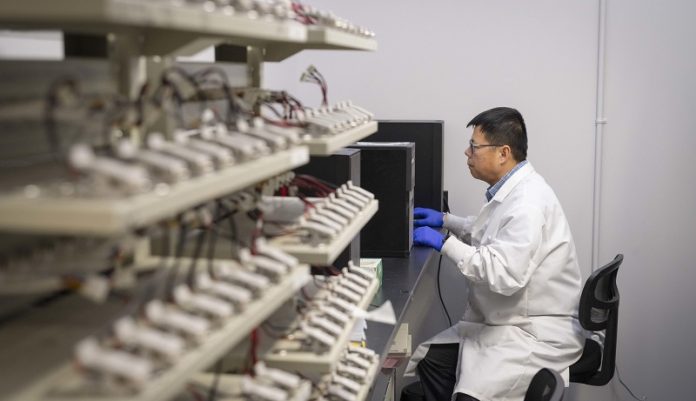
In a big step toward greener energy solutions, researchers at Worcester Polytechnic Institute (WPI) have developed a smarter and more eco-friendly way to recycle old lithium-ion batteries.
The new method, created by a team led by Professor Yan Wang, offers a cleaner, more efficient alternative to traditional recycling methods—and it could make a real difference in the way we handle battery waste.
Their research, recently published in the journal Energy Storage Materials, focuses on a type of battery material called nickel-lean (Ni-lean) cathodes.
These materials are common in used lithium-ion batteries, like the ones found in electric vehicles and consumer electronics.
The problem is that current recycling techniques have trouble dealing with these materials and often waste a lot of energy while producing lower-quality results.
But this new method changes that. Instead of using high temperatures and complicated machinery, the researchers developed a process called hydrometallurgical upcycling.
This approach uses liquids to extract the valuable metals—nickel, cobalt, and manganese—from the old battery material.
The team was able to recover over 92% of these important metals and turn them into new, high-quality cathode powders that can be used in new batteries.
What’s more, the batteries made with these recycled materials perform just as well as those made from brand-new materials. Tests showed that they kept 88% of their capacity after 500 charge cycles and more than 85% after 900 cycles in larger, commercial-sized batteries. This means the recycled materials can support long battery life, just like new ones.
Another major benefit is that the new process uses less energy—about 8.6% less than current recycling techniques—and it cuts down on carbon emissions by 13.9%. That makes it not only better for the environment, but also more cost-effective in the long run.
Professor Wang says the method could help solve two big problems at once: the growing piles of battery waste and the world’s increasing need for critical battery materials. By recovering and reusing these valuable metals, we can reduce our dependence on mining and build a more sustainable supply chain for electric vehicles and clean energy technologies.
With governments and industries pushing for more sustainable solutions, this innovation could become an important part of the future battery economy. It’s a clear example of how smart science can help power a cleaner, greener world.



